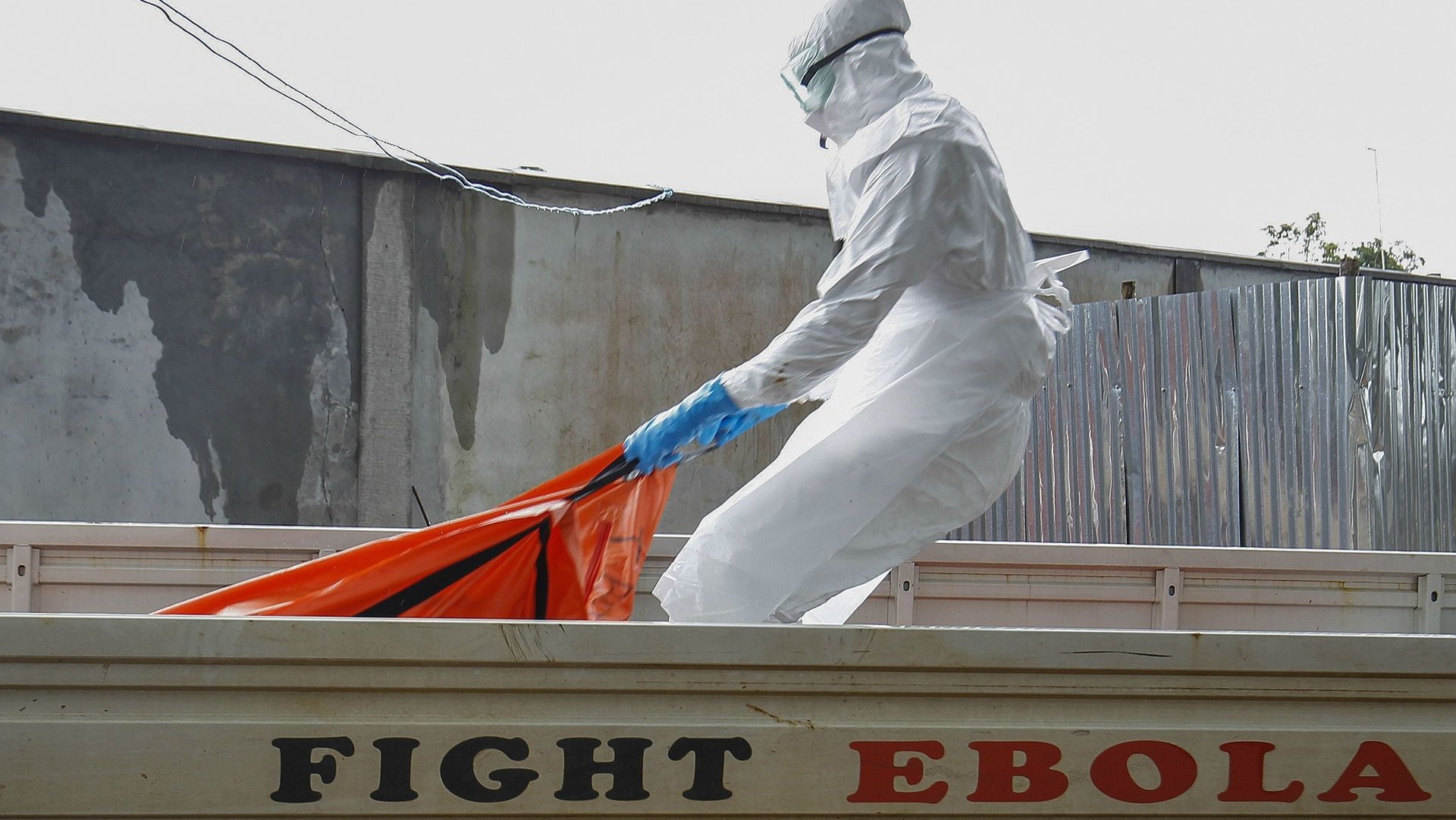DR Congo’s Ebola outbreak cases have doubled in just two months crossing the 2,000-mark
The Ebola outbreak in the Democratic Republic of Congo (DRC) is spreading at an alarming rate.


The Ebola outbreak in the Democratic Republic of Congo (DRC) is spreading at an alarming rate.
In the last two months alone, the World Health Organization has recorded 1,000 cases—as many as it did in the first seven months after the outbreak was first confirmed in the country’s North Kivu Province last August. As of June 3, the World Health Organization reported 2,020 reported Ebola cases, with 1,354 resulting in deaths.
The rapid transmission of the virus that causes a hemorrhagic fever is exacerbating a crisis that’s already surpassed the 1976 outbreak as the country’s worst ever. In comparison, the outbreak in 1976—the first ever recorded—saw only 318 cases identified. The ongoing outbreak is the tenth in DRC’s history.
The spiraling outbreak also betrays the DR Congo’s perceived expertise at containing the disease given its relative success with its nine prior outbreaks.
But the continued failure to contain the disease’s spread is linked to the location of the outbreak as DRC’s northeast region is home to armed rebel militias and highly prone to conflict. As such, the lack of safety for WHO and local health ministry staff has proved a stumbling block to widespread screening and vaccination as well as tracking possible contacts and cases—all crucial elements of controlling an Ebola outbreak. The UN has described the situation as “working in an operating environment of unprecedented complexity.”
It’s a problem that does not appear to be slowing either as, in 2019 alone, there have been 174 attacks on health facilities or workers in the North Kivu—triple the number of attacks in the last five months of 2018, per WHO. In one of such attacks, Dr Richard Valery Mouzoko Kiboung, a prominent Cameroonian epidemiologist with WHO, was killed in April following an attack on a university hospital in North Kivu.
Yet, unless there is a semblance of security for health workers to work safely at a faster pace, the outbreak is unlikely to abate. Should that happen, it will allow WHO and DRC health ministry officials to deploy rVSV-ZEBOV, the most effective Ebola vaccine currently in use, more widely. During its testing, rVSV-ZEBOV showed a 100% protection rate with thousands of people tested in Guinea all confirmed as virus-free within 10 days.
Sign up to the Quartz Africa Weekly Brief here for news and analysis on African business, tech and innovation in your inbox